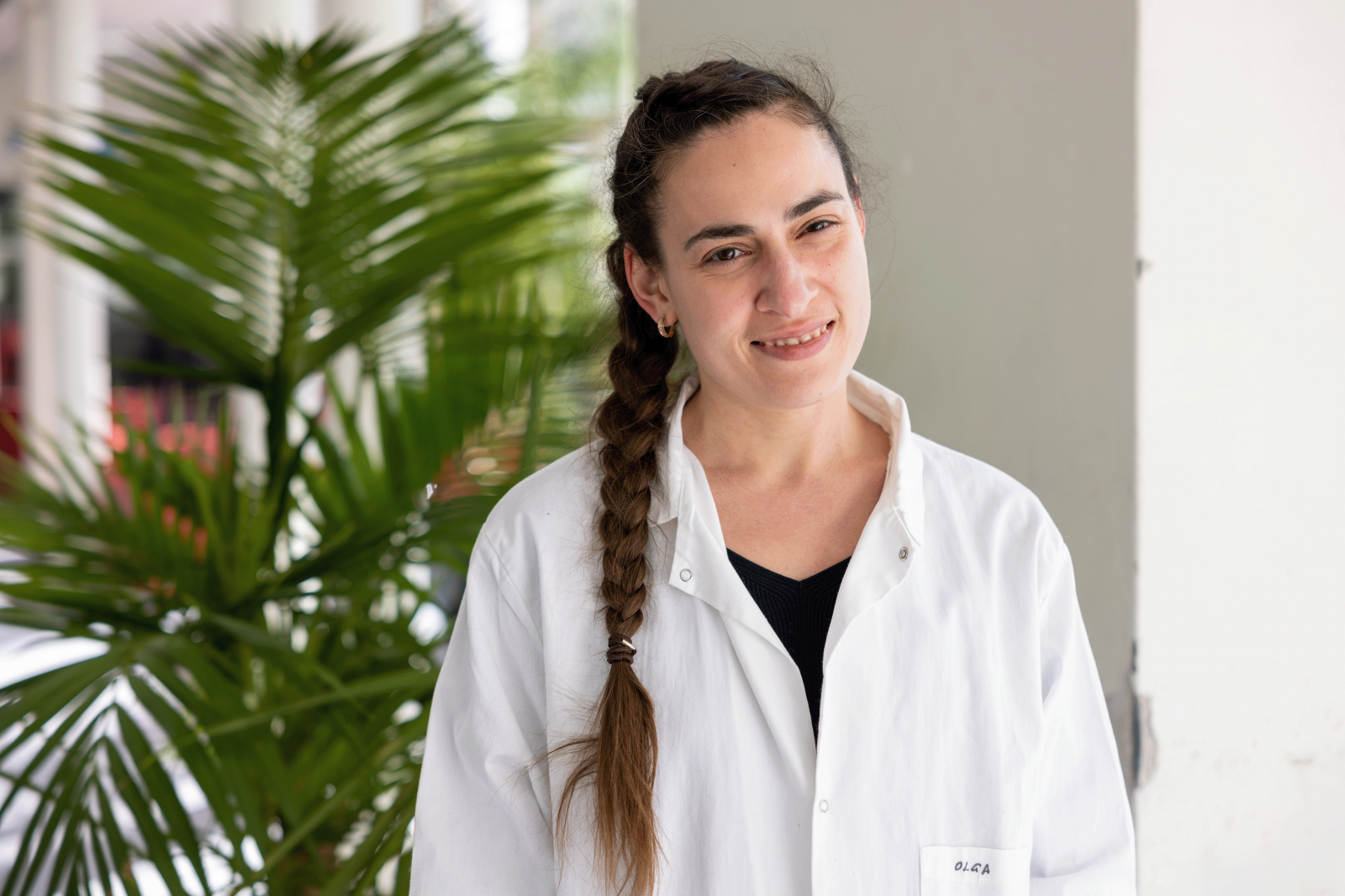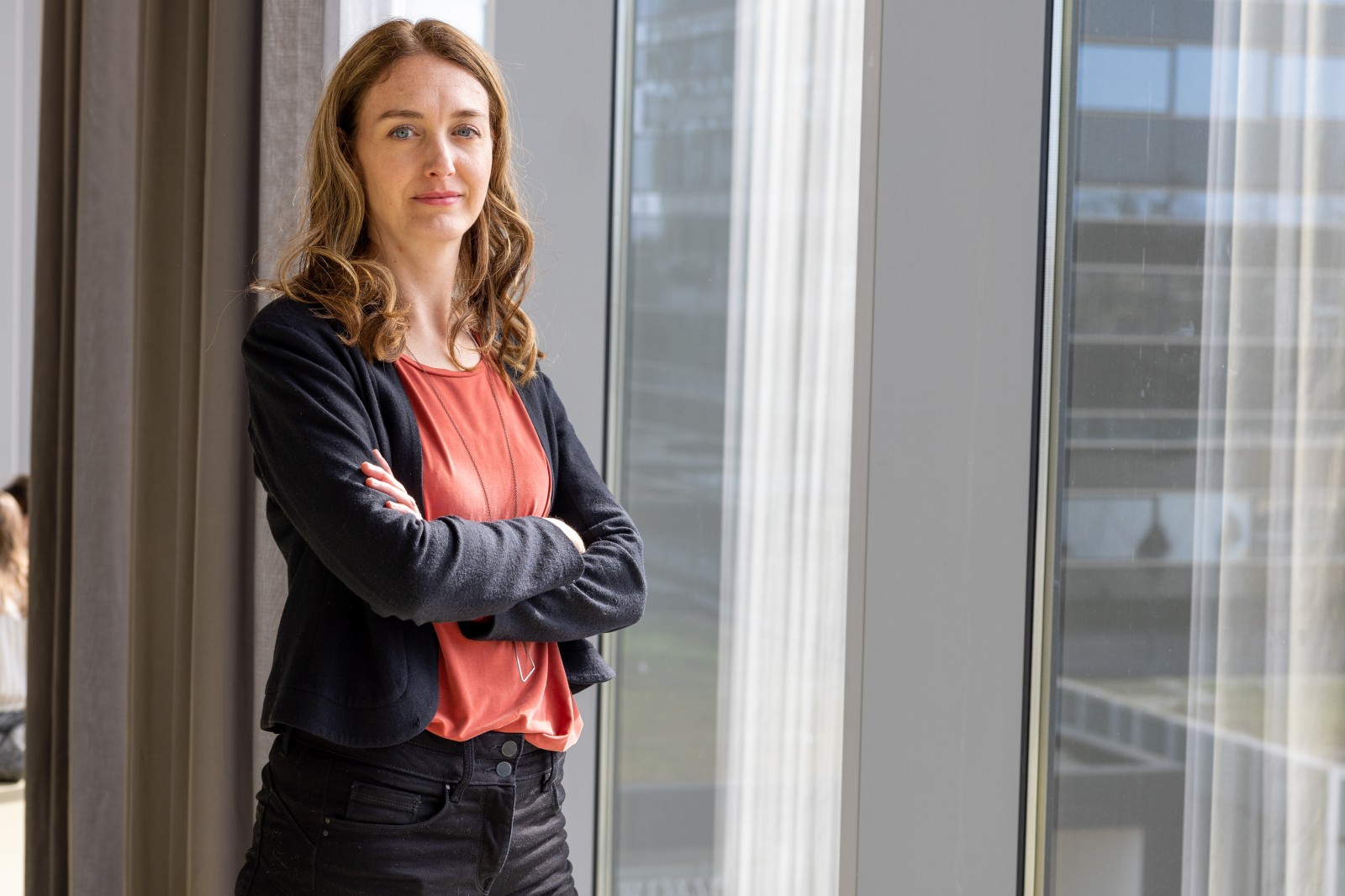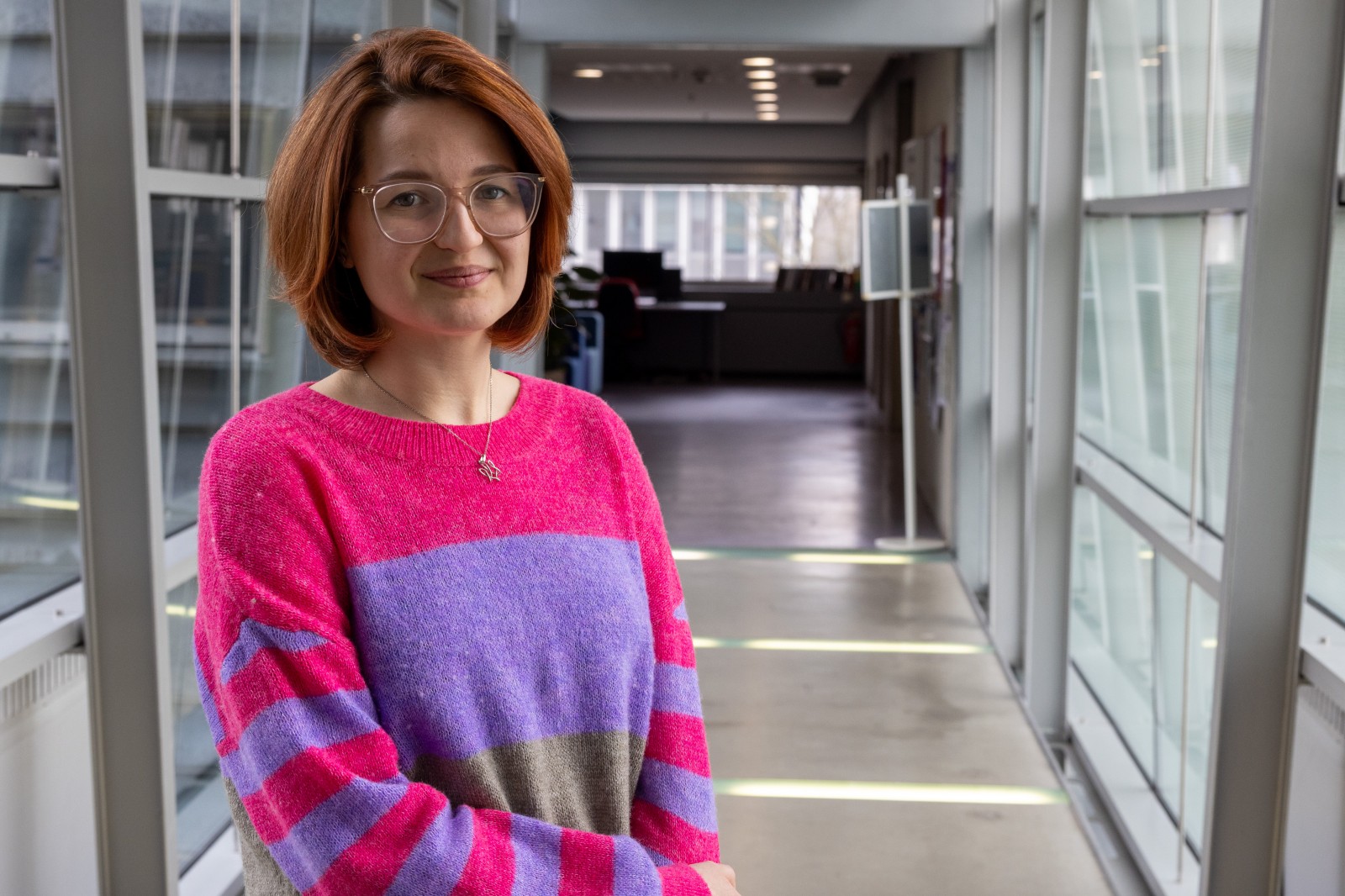18 Apr 2023
2023 L'Oréal Unesco NIAS-KNAW LNVH For Women in Science Fellowships awarded
Two exceptional women scientists in the field of Life Sciences and STEM disciplines received a research grant of EUR 30,000 on April 18, 2023, giving them the opportunity to spend several months working on their research at the prestigious Netherlands Institute for Advanced Study (NIAS-KNAW) in Amsterdam. It is the 11th time that these grants have been awarded. In addition, the three winners of the Rising Talent prizes were announced. The festive award ceremony took place in the Hodshon House of the Royal Holland Society of Sciences and Humanities (KHMW) in Haarlem and was moderated by Margje van Weerden (ZijSpreekt).The laureates of the For Women in Science Fellowships
Volha Chukhutsina (VU Amsterdam - STEM)

Volha Chukhutsina is a biophysicist specializing in optical spectroscopy, photosynthesis and structural biology. Her field of research - photoregulation in photosynthesis due to temperature changes - remains largely unexplored territory, but is essential for researching, for example, climate change. To gain deeper insight into this photoregulation in photosynthesis, innovative, multidisciplinary research is needed. Volha would like to further expand and develop this research using a combined approach in which she studies the phenomena at the level of individual proteins to whole organisms. The For Women in Science fellowship gives Volha the opportunity to shape and further develop her line of research and also to organize an international workshop on temperature adaptation in photosynthesis.
View Volha's introductory video here.
Renée Visser (University of Amsterdam - Life Sciences)

Renée Visser is a cognitive neuroscientist with a background in clinical psychology. Her work focuses on brain mechanisms underlying the plasticity of emotional memory. Renée combines behavioural experimentation with functional Magnetic Resonance Imaging (fMRI) and psychophysiological measurements to investigate how emotional memories arise and change, both spontaneously and as the result of psychological and pharmacological interventions. Recently, Renée has become intrigued by the role of odour in the formation and (involuntary) recall of distressing memories. Still, many questions remain, e.g., regarding the underlying neurobiological mechanisms and the potential for memory modifi cation. Answering these questions calls for a fundamentally interdisciplinary approach, building on knowledge about chemical signalling, neurobiology of learning and memory, clinical psychology, and cultural contexts. Renée's ultimate goal is to increase insights into processes underlying symptoms of anxiety, depression and posttraumatic stress, and use this knowledge to contribute to improving mental health care.
View Renée's introductory video here.
The Rising Talent Awards
The winners of the Rising Talent Awards 2023 are: Yevheniia Cheipesh, Aranka Ballering and Marieke Sophia van de Loosdrecht. Their grants are intended for research-related activities. Honorable mentions went to Agathe Balayn and Miek Schlangen.
Yevheniia Cheipesh
The first prize winner of the 2023 FWIS Rising Talent Award, Yevheniia Cheipesh, is a postdoc at the Lorentz Institute for Theoretical Physics at Leiden University. She works in the field of theoretical physics and focuses on the search for a special particle known as a Majorana fermion. A Majorana fermion is a particle that is its own antiparticle. Her work covers the fields of high-energy and low-energy physics. The search for Majorana fermions in high-energy physics focuses on neutrinos, which are thought to be at the origin of dark matter, the invisible and unknown component of matter in the universe. Yevheniia receives € 3,500,-.

View Yevheniia Cheipesh's introductory video here.
Aranka Ballering
The winner of the second prize is Aranka Ballering, PhD candidate at the University of Groningen. Aranka conduct research into what extent there are sex and gender differences in medical trajectories of patients with physical (somatic) complaints. She will receive € 2,000,-.
Marieke Sophia van de Loosdrecht
The third prize worth € 1,000 is for Marieke Sophia van de Loosdrecht. Marieke is a postdoctoral researcher in the Biosystematic Group of Wageningen University. In her PhD research, she worked with ancient DNA to reconstruct prehistoric human migrations.
More information about the prizes, the jury and the winners: brochure FWiS 2023.
Member of the Netherlands Unesco Commission, professor in Science, Technology, and Innovation Studies, director of the Centre for Science and Technology at Leiden University and jury member of the FWiS fellowship programme, prof. dr. Sarah de Rijcke, addressed the laureates in a video. Watch the video here.
Eleven years of FWiS in the Netherlands
In 2012, L'Oréal Nederland and the Netherlands Unesco Commission introduced the national For Women in Science fellowship program in collaboration with the Netherlands Institute for Advanced Study (NIAS-KNAW, part of the Royal Netherlands Academy of Arts and Sciences) and the Dutch Network of Women Professors (LNVH). Now, eleven years later, this initiative is still proving its value. Under the motto 'The world needs science, science needs women', the FWiS program promotes the scientific career of women, and by doing so, aims to increase the number of women professors.
The partners
L'Oreal
The L'Oréal Group has more than 100 years of experience in the beauty industry. Research and Innovation, and a dedicated research team of 4,000 people, are at the heart of L'Oréal's strategy. They work to meet all beauty needs around the world and aim to reach a billion new consumers in the coming years. L'Oréal's 2020 CSR strategy 'Sharing Beauty with All' sets ambitious targets for sustainable development in the Group's value chain.
Unesco, the Dutch Unesco Commission
Unesco is the organization within the United Nations that uses education, science, culture and communication to promote peace and security in the world. Since its foundation in 1945, Unesco has aimed to promote science in the interests of sustainable development and peace. The organization also works to eliminate all forms of discrimination and promote gender equality, especially in scientific research. The Netherlands Unesco Commission is the link between the worldwide community united in Unesco, the Dutch professional field and the Dutch government.
The LNVH
LNVH aims to promote and sustain equal representation of women in academia, works towards the betterment of the position of women of all backgrounds and pushes for an inclusive and safe academic community in which equal pay is the norm. The LNVH works towards this goal by, among other things, knowledge development, capacity building, advocacy and policy making.
NIAS-KNAW
The Netherlands Institute for Advanced Study in the Humanities and Social Sciences (NIAS-KNAW) annually selects approximately fifty researchers from the Netherlands and abroad for a residential fellowship. NIAS offers space for reflection and interaction and thus stimulates scientific innovation. NIAS wants to connect scientific disciplines, encourage collaboration, facilitate new research directions and strengthen the links between art and science. NIAS was founded in 1970 and has been an institute of the Royal Netherlands Academy of Arts and Sciences since 1988. As an independent Institute for Advanced Study, NIAS is a member of two international networks, including with sister institutes in Berlin, Uppsala, Princeton and Harvard.
KHMW
The Royal Holland Society of Sciences and Humanities is the oldest ‘Learned Society’ in the Netherlands. It was founded in 1752 under the name Hollandsche Maatschappij der Wetenschappen with the aim to promote science in the widest possible sense. Ever since its establishment, the KHMW has been involved in promoting science and building bridges between academia and society.
More information on the Dutch L'Oréal Unesco NIAS-KNAW LNVH 'For Women in Science'-programme? Click here.

